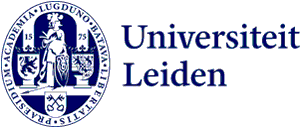
Countering nerve pain caused by chemotherapy with new drug
Nerve pain is one of the most common side effects of chemotherapy. It is therefore one of the biggest reasons for cancer patients to stop treatment early. Darcy Reynolds worked on new drug candidates against this pain during her bachelor's thesis. She developed a new series of molecules that increase the success rate of the drug in clinical trials. With that research, she was nominated for the Leiden Science Young Talent Award 2023.

Patients can suffer from chronic pain for years after treatment. Nerve pain, also known as neuropathic pain, is a common side effect of chemotherapy treatments for cancer patients. The pain occurs because the chemo not only targets the cancer, but also damages nerves in the process. 'Currently, patients receive opioids to combat this pain, but this leads to dependence on these substances,' says Darcy. 'So alternatives to treat this neuropathic pain are definitely desirable.'
During the research for her thesis, Darcy worked on designing, synthesising and testing new potential drugs. 'I developed a new series of molecules with improved properties that give the drug better chances of success in clinical trials. Earlier variants of my molecules have already shown promising results in mice. Of the new molecules, we expect the body to absorb them better, which makes them potentially more effective.'
Cosy atmosphere in the lab room
Darcy found the lab work the most enjoyable part of the research. 'As a Life Science & Technology student, I am used to doing biological research. So working in a chemical laboratory took some adjusting, but I actually really liked it. And the atmosphere in the lab and all the lovely and sociable people at Molecular Physiology only made the lab work even more fun!'
Darcy looks back on her bachelor's with great pleasure. 'I met my best friends there. After the course, almost all of us started doing something else. But we still speak to each other often and always have a great time.' This academic year, she started the Life Science & Technology (LST) master's programme in Leiden. 'I haven't lost my passion for chemistry, of course. That is why I now combine the more biomedical and biotechnological subjects of LST with chemical subjects in my elective course space. As a result, I found out that not only organic chemistry, but also inorganic chemistry really interests me!'
Image: Pexels
